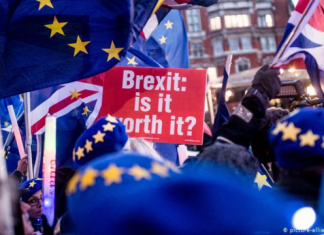You’d have to be living under a rock to not see that coronavirus is wreaking havoc across the globe. Even if you aren’t personally affected in terms of health, it’s highly likely that the impact on both the UK and world economy will touch all of us in some way. Since the government outlined advice to avoid all necessary travel and contact with others and has now imposed actual restrictions on social contact, it has quickly become clear that, in the words of the usually relentlessly optimistic Boris Johnson, the economy is facing a ‘severe blow’.
So what has happened and how might the situation unfold? In this guide, we’re going to take a quick check of where we are and what’s being said.
It will be worth noting that due to the rapidly evolving nature of this event, this information may quickly become outdated. That being said, let’s take a quick check of where we are now.
Business Closures
Due to the government’s advice that people should stay in as much as possible and avoid pubs, clubs, restaurants and cafes, economic activity in the UK will reduce significantly. Paul Dales, chief economist from research company Capital Economics said: “The UK government has implemented measures to contain the spread of coronavirus that will significantly reduce economic activity. Lots of business activity will continue in some form, but lots won’t. Hiring and investment decisions will be put on ice or cancelled. Households won’t spend much on non-essential items. With the peak of the virus yet to come, it is clear we are in the early days of a big recession.”
With large parts of the economy now at a standstill, it’s believed that GDP could fall by between 10% and 20%. For comparison, the UK’s worst recession since the Second World War was in 2008 when GDP shrank by 6%. It lasted for five quarters, and during that time an estimated 51 businesses folded every day, with a total of 26,978 businesses going into liquidation, according to Conservative Party research.
The recently appointed chancellor Rishi Sunak has certainly been thrown in at the deep end. Last week he announced that he had set aside £330 billion of government loans for struggling businesses, which is equivalent to 15% of GDP.
In his statement he said “that means any business who needs access to cash to pay their rent, their salaries, suppliers or purchase stock will be able to access a government backed loan on credit on attractive terms.”
The Plunging Pound
Worries over the effect coronavirus has had on the economy has spooked investors to such an extent that the pound has fallen to its lowest level against the dollar since 1985. The fall came after financial markets fell sharply again after major stimulus plans did nothing to quell fears about the economic impact of the pandemic.
Neil Wilson, chief economist for Markets.com said that the pound’s weakness could in part stem from queries over how the UK government plans to pay for the emergency economic measures introduced by Rishi Sunak. Wilson said: “This is the worst sustained period of sterling selling that I can recall. The government’s massive fiscal package undoubtedly means more borrowing for the UK economy. How will we pay for all this?”
Interest Rates Slashed
Due to the ongoing pressure coronavirus is putting on the economy, the Bank of England cut interest rates twice in a period of just over a week from 0.25% to 0.1%. This is the lowest interest rates have ever been in the Bank’s 325-year history. The Bank of England also said it would increase its holdings of UK government and corporate bonds by £200bn in an effort to lower the cost of borrowing. Despite this, the Bank said that these measures were not going far enough and that a further measure of packages will be necessary.
In a statement the Bank of England said: “The spread of Covid-19 and the measures being taken to contain the virus will result in an economic shock that could be sharp and large, but should be temporary.”
Whilst lower interest rates will be welcome, more still needs to be done to help businesses. Jeremy Thompson-Cook, chief economist at payments company Equals Group, said: “lower rates and additional quantitative easing can keep markets satisfied and borrowing costs for both businesses and the government down but unless money is forced into the hands of small businesses soon, then it will be for nothing; they are the ones laying off staff due to a liquidity shock.”
An Uncertain Future
Though the government and the Bank of England are attempting to help, there is no doubt that both individuals and businesses in the UK, and the rest of the world, face an uncertain economic future. Time is running out for British firms and business owners say they are unclear about how to access the financial support promised by the government.
All sorts of solutions have been floated, from cutting taxes such as VAT and business rates to introducing a UK basic income, which will prevent mass job losses by allowing the taxpayer to subsidise companies’ wage bills. It’s currently very hard to predict what will happen to the economy, and businesses will be keeping a very close eye on all further developments in this rapidly evolving situation.











